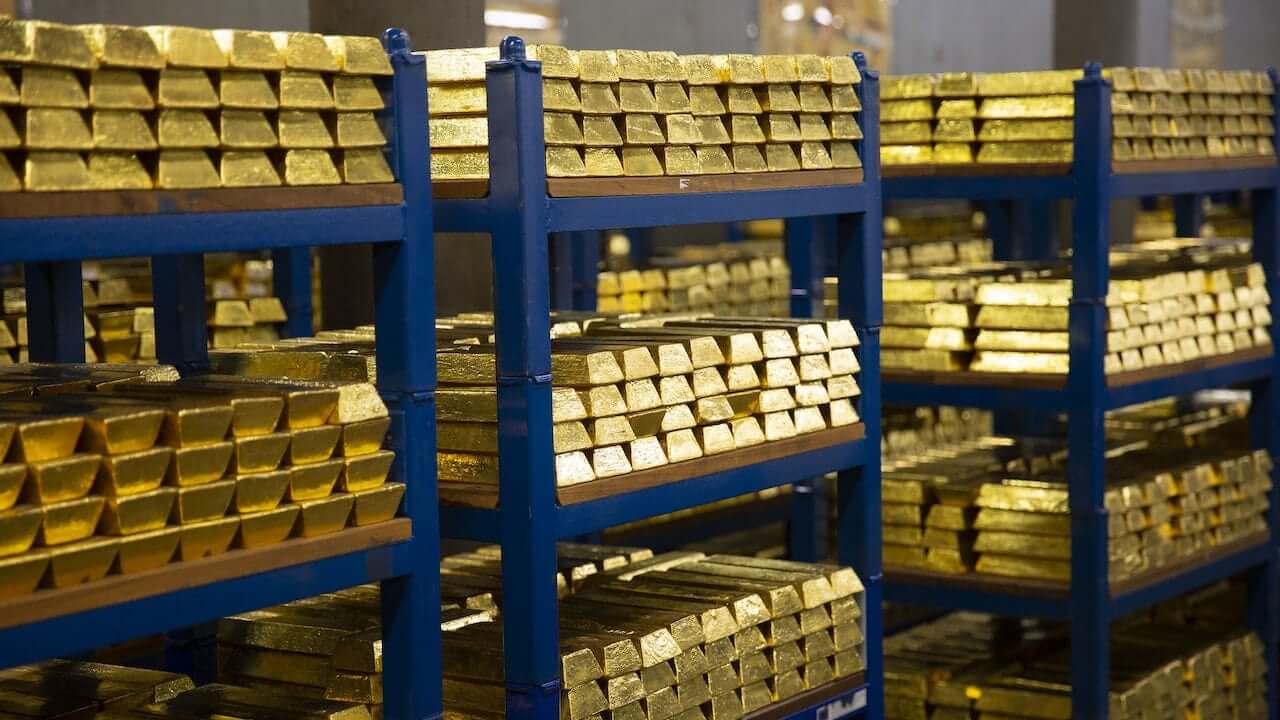(Mike Maharrey, Money Metals News Service) Central banks gobbled up gold again in 2023. Central bank gold buying fell just 45 tons short of 2022’s multi-decade record.
According to the World Gold Council, central banks net gold purchases totaled 1,037 tons. It was the second straight year central banks added more than 1,000 tons to their total reserves.
Central banks now hold an estimated 36,700 tons of gold as the global scramble for Federal Reserve note alternatives continues.
The World Gold Council called the data a “testament to the recent strength in central bank demand for gold.”
Central banks have been consistent net buyers on an annual basis since 2010, accumulating over 7,800 tons in that time, of which more than a quarter was bought in the last two years.
Findings from our 2022 and 2023 Central Bank Gold Survey show that gold’s performance during times of crisis and its role as a long-term store of value are key reasons for central banks to hold gold.
Central bank gold buying in 2023 built on the prior record year. Total central bank gold buying in 2022 came in at 1,136 tons. It was the highest level of net purchases on record dating back to 1950, including since the suspension of dollar convertibility into gold in 1971.
China was the biggest buyer in 2023. The People’s Bank of China officially reported a 225-ton increase in its gold reserves.
It was the biggest increase in the communist nation’s reserves since 1977. The Chinese central bank now officially holds 2,235 tons of gold. The country ranks sixth in the world in official gold reserves.
There has long been speculation that China owns far more gold than it officially reveals. As Jim Rickards pointed out on Mises Daily back in 2015, many analysts believe that China keeps several thousand tons of gold “off the books” in a separate entity called the State Administration for Foreign Exchange (SAFE).
Poland was the second-biggest gold buyer in 2023. Between April and November, the Polish central bank bought 130 tons of gold, increasing its gold holdings by 57 percent, to 359 tons.
In 2021, Bank of Poland President Adam Glapiński announced a plan to expand the country’s gold reserves by 100 tons. The central bank reached that goal in September and kept buying.
Glapiński recently indicated the Bank of Poland will continue to add gold to its holdings and that appears to be the case. The Polish central bank made its biggest purchase of 2023 in November, adding 19 tons of gold to its reserves.
“This makes Poland a more credible country, we have a better standing in all ratings, we are a very serious partner and we will continue to buy gold. The dream is to reach 20 percent,” Glapiński said.
When he announced the plan to expand its gold reserves, Glapiński said holding gold was a matter of financial security and stability.
Gold will retain its value even when someone cuts off the power to the global financial system, destroying traditional assets based on electronic accounting records. Of course, we do not assume that this will happen. But as the saying goes – forewarned is always insured.
And the central bank is required to be prepared for even the most unfavorable circumstances. That is why we see a special place for gold in our foreign exchange management process.
Other buyers in 2023 included Singapore, the Czech Republic, Iraq, India, and the Philippines.
The National Bank of Kazakhstan and the Central Bank of Uzbekistan were the two largest sellers of gold.
It is not uncommon for banks that buy from domestic production – such as Uzbekistan and Kazakhstan – to switch between buying and selling.
Notably, Turkey was a net seller last year, but barely. The Turkish central bank sold 160 tons of gold in the spring of 2023 but returned to buying in the third quarter.
According to the World Gold Council, the big gold sale was a specific response to local market dynamics and didn’t appear to reflect a change in the Turkish central bank’s long-term gold strategy. The Turkish central bank sold gold into the local market to satisfy demand after the government imposed import quotas in an attempt to improve its current account balance. The country is running a significant trade deficit.
In December, Turkey added 18 more tons of gold as it continues to replenish its reserves.
Looking ahead, the World Gold Council said the central bank gold buying trend “shows little sign of abating.”
This reinforces our belief that global central banks will remain net buyers again this year.

